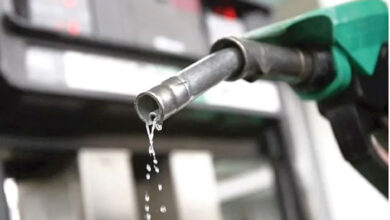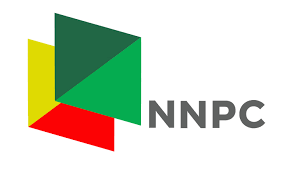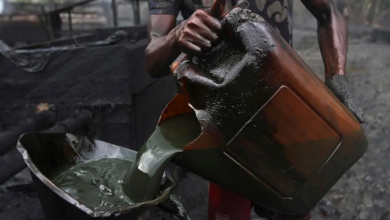Monopoly Heightening Nigeria’s Downstream Petroleum Industry Crisis

Key oil industry analysts have fingered monopoly as critical factor fueling consistent supply glitch in Premium Motor Spirit (PMS) that is known as petrol in the country.
Apart from other issues like dearth of infrastructure, in-country refining failures and foreign exchange shortages, activities of middlemen and monopolistic tendencies of few individuals have presented more problems for Nigeria.
The above narrative was the focal point deliberated upon by the analysts from the Institute for Energy and Extractive Industry Law at a one-day roundtable on ‘The Midstream and Downstream Petroleum Industry in Nigeria: The Role of NMDPRA in ensuring Energy Security,’ in Lagos.
At the meeting energy policy expert, Mr. Henry Adigun, said while the Federal Government was in support of activities of local refineries operators, the regulator, Nigerian Midstream and Downstream Petroleum Regulatory Authority(NMDPRA) is not empowered in its statutes to support a monopoly of fuel supply and distribution.
Adigun, argued that monopoly is not the best option for Nigeria and that opportunities to import and refine products should be offered to interested investors.
He said, the regulatory Agency should not be forced or coerced into submission such that a few persons may have edge over other competitors.
On importation of products, he noted that though the law presents the Nigerian National Petroleum Company Limited (NNPCL) as importer of last resort, the market is being choked by trans border thieves and rising domestic demand.
Adding to Adigun’s submission, Mr. Taiwo Ogunleye, from the same Institute, stated that regulatory issues are key to creating efficiency and transparency in the value chain.
Ogunleye declared that it is enshrined in the Petroleum Industry Act (PIA) that no single person or institution must own and control more than 40 per cent of fuel supply and distribution stake in Nigeria.
“This rule is, however, with the exception of Nigerian National Petroleum Company Limited (NNPCL), which the PIA described as the supplier of last resort,” Ogunleye said.
Petroleum products, according to him, remained an important part of both the world’s energy mix and the global economy and keystone of our modern energy system helping to drive the global economy.
“Petroleum plays an essential role in shaping our lives from fuelling vehicles and generating electricity to producing a wide range of everyday products. The petroleum industry involves a wide range of commercial activities from the exploration of reserves deep in the ground to the sale of the final product to the end customer.
The industry is frequently shown in the form of a ‘value chain’, specifically a set of activities performed sequentially in order to deliver a final product, and includes upstream, midstream and downstream sectors;” he said.
Citing a Report issued by the Oil, Gas, and Mining Policy Division of the World Bank, he submitted that “Inadequate regulation and enforcement can also harm the efficiency of fuel supply.”
According to him, sector regulations that have not been updated in decades, lack sufficient coverage, or list outdated fuel specifications may deter entry of experienced operators adhering to high standards.
He noted that an efficient legal framework for the downstream petroleum sector requires legislation that clearly defines and limits the role of the government in order to avoid undue interference and establishes principles and rules for the private and public participants in the supply chain in order to create a level playing field and promote fair, transparent, and healthy competition.
The Report stated further that all sectors of the economy could benefit from an efficiently managed downstream oil sector that delivers petroleum products in the quantity and at the quality required at least cost.
For a given price of a petroleum product on the world market, end-user prices net of taxes are affected by a number of factors, that includes market size and economies of scale, mode of product transport in terms of cost per liter of fuel transported over land, the least expensive is pipeline transport (in a handful of cases in Sub-Saharan Africa that have the requisite scale economy), followed by rail, and finally by trucks, Liberalized versus controlled pricing protection given to inefficient domestic suppliers.
He also spoke of energy security which is the continuous availability of energy in varied forms, in sufficient quantities, and at reasonable prices.
He explained that energy security implies availability, affordability, accessibility and acceptability.
In his explanation, availability ensures that energy supplies are available in sufficient amounts while affordability aims to have these resources available at sufficiently-low prices.
Accessibility focuses on ensuring all citizens have access to energy, which is to some extent about ensuring that reliable infrastructure is in place to ensure a robust supply for the end user, but this is generally interpreted in practice as ensuring that energy prices are kept low and fuel poverty is minimised.
He said acceptability is concerned with the negative impacts of energy, such as pollution and environmental damage, and ensuring that these impacts are minimised in order to make the energy acceptable to the customer.
Earlier, Adigun, revealed that Nigeria records a loss of $1,000 on every barrel of crude oil it exports.
The loss he said is no longer sustainable given the current economic situation of the country.
Adigun said the failure of the country to reap from the gains of its crude oil through value addition which included local refining was responsible for the $1,000 per barrel loss.
Source: orientalnewsng.com





